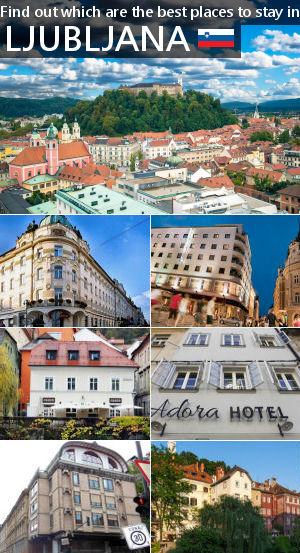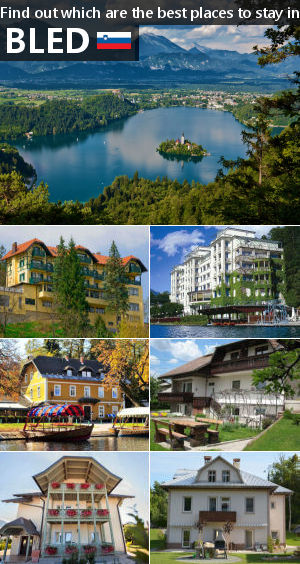Introducing The Wild Lake
Wild Lake or Divje Jezero as it is called in Slovene is a very unique and mysterious karstic lake located in Idrijski Log near the town of Idrija in western Slovenia. Since 1967, the lake has been protected as a natural monument of national significance of Slovenia. In 1972, the area of the lake was arranged into the first Slovenian outdoor museum in nature. In 1997 divers descended to 170 meters (558 feet), yet did not reach the bottom.
Wild Lake Review
Most visitors visit Idrija to learn about mercury mining and lace making and to try Zlikrofi, a delicious traditional Slovenian dish from Idrija. But only two kilometres south from Idrija’s town centre (about a 10-minute drive or a 40-minute walk along the Rake water channel) you can find one of Slovenia’s most intriguing natural phenomena — the Wild Lake. What makes the lake so extraordinary is its Vaucluse spring that spews water after heavy rains, creating a bubbling surface, which is how the lake got its name.
Normally, the lake’s emerald green surface is calm and peaceful and the lake measures about 65 meters (215 feet) in length and 30 meters (100 feet) in width – it will take you only about 15 minutes to walk around the lake. But if you visit the Wild Lake following extremely heavy rainfall, when massive volumes of water that gathers from the entire area of the Crni Vrh plateau and the Javornik Hill starts bursting out from the underground, the lake’s normal water level rises up to 3 meters (10 feet).
The lake has been explored by the most experienced Slovenian divers to a depth of 170 metres (558 feet). It has many underground caves and several divers who wanted to explore the lake even deeper and locate the lake’s source have died in the labyrinth. What is known is that water flows into the lake from an underground passage suspected to measure about 200 meters long.
Emerging from the lake is the Jezernica River, which flows only 55 meters to the Idrijca River and is the shortest river in Slovenia.
The 100 metre-high cliffs encircling the Wild Lake are remarkable as well. They are home to a variety of Alpine flora, including several endemic species, such as the Carniolan primrose and hacquetia. Residing in the lake is is also Proteus Anguinus, the human-fish.
The lake is accessible also for those with walking problems or in wheelchairs as it can be observed from the road/bridge.
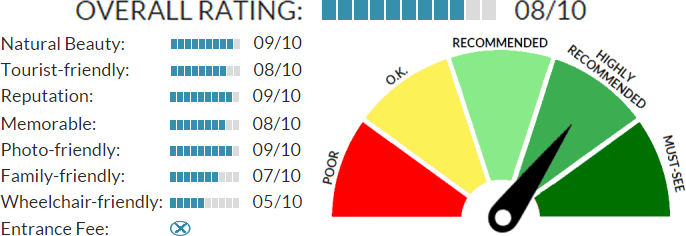
Wild Lake Pictures
8 high-resolution photos that prove you absolutely have to visit the Wild Lake!
Photo by Gregor Kacin
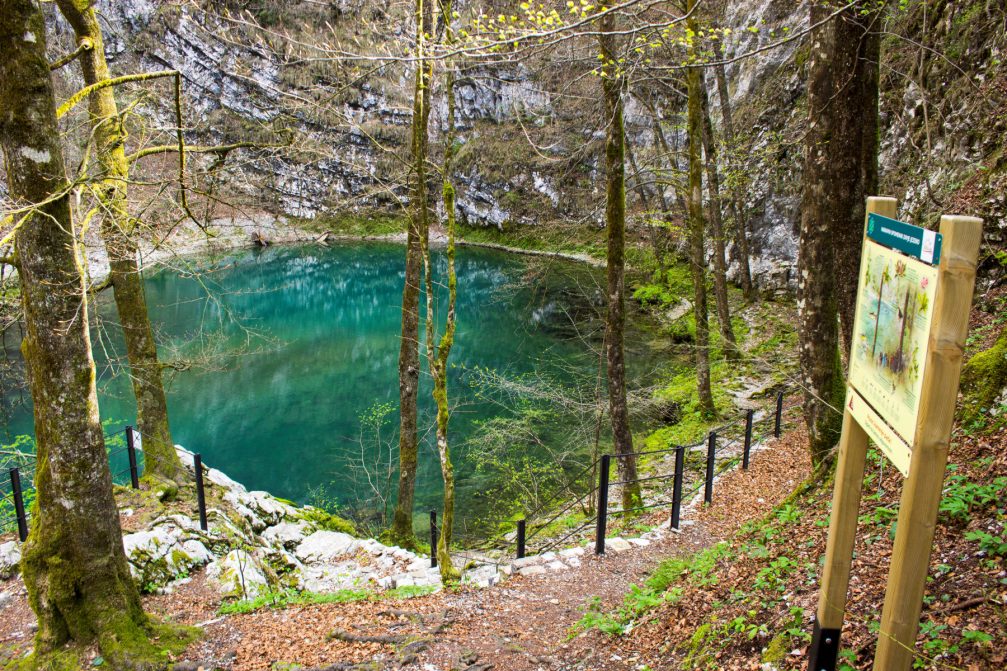
The mysterious Wild Lake.
Next 7 photos below are from the Media library of I Feel Slovenia
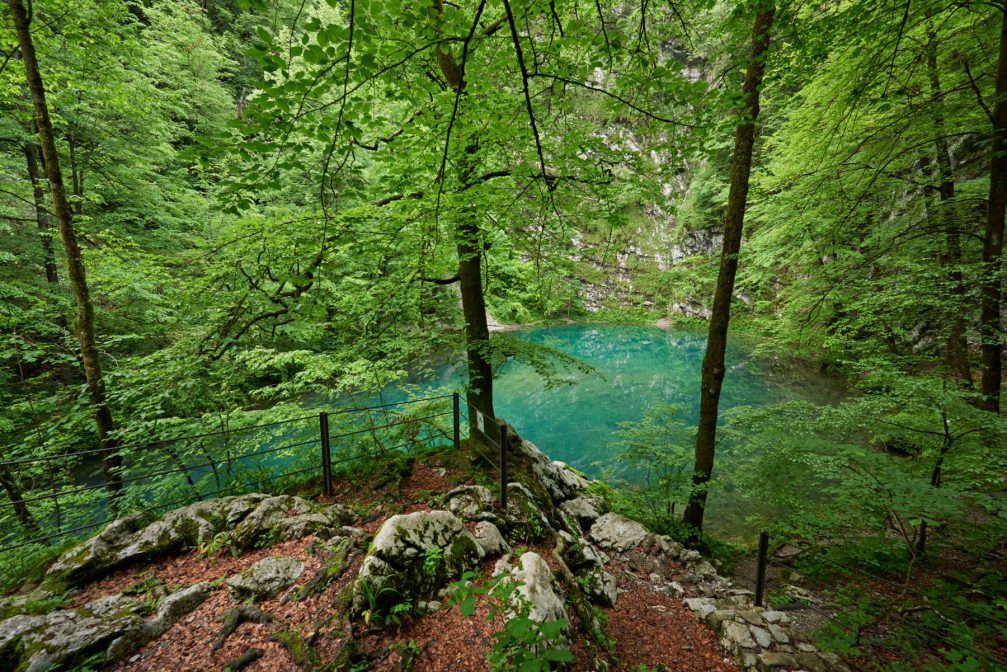
The lake is the deepest in Slovenia. (Image by Tomo Jesenicnik)
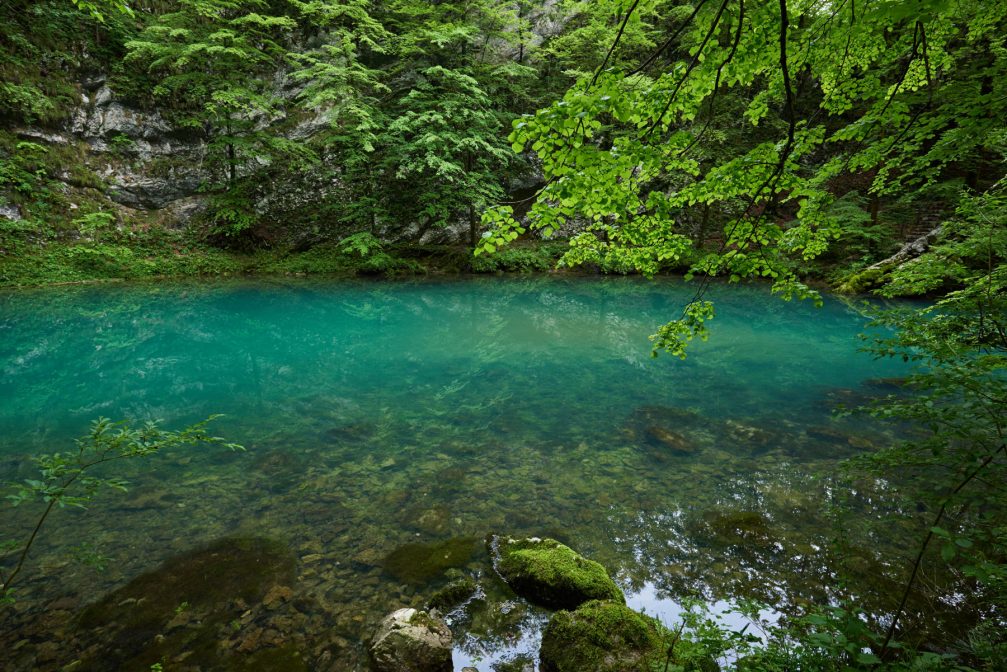
The lake is fed by a deep karst spring. (Image by Tomo Jesenicnik)
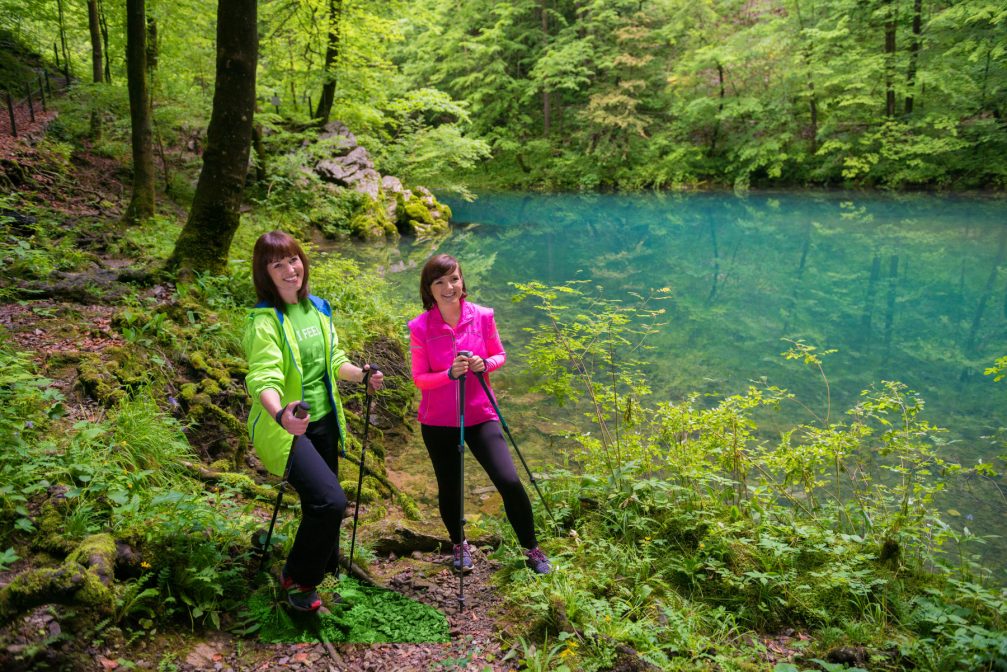
It’s about a 40-minute peaceful stroll along the Rake water channel from Idrija to the lake. (Image by Nea Culpa d.o.o.)
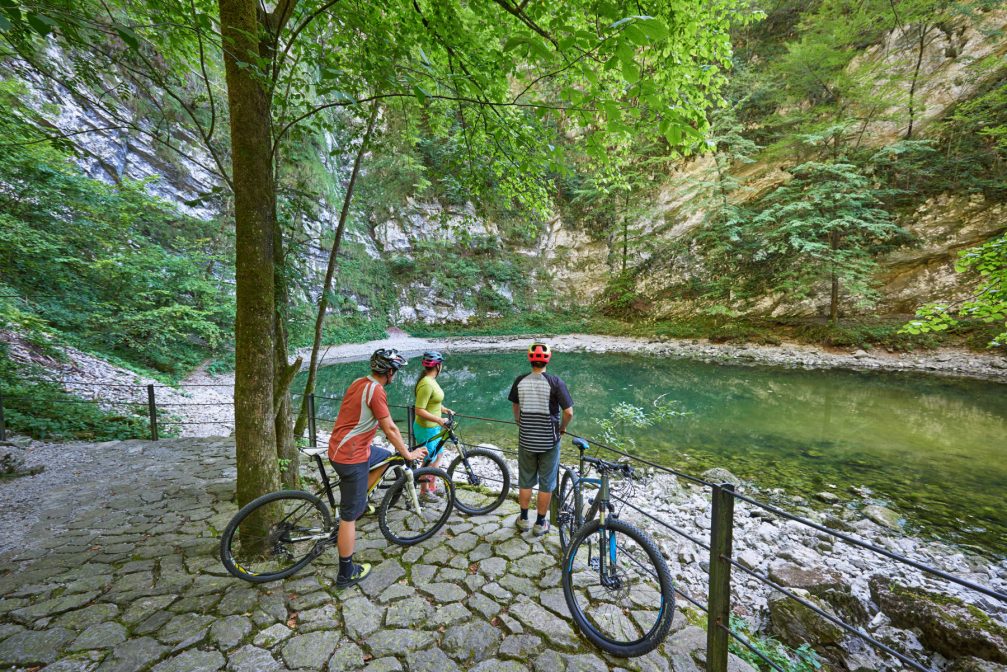
It’s only a 20-minute ride by bicycle from Idrija to the lake. (Image by Tomo Jesenicnik)
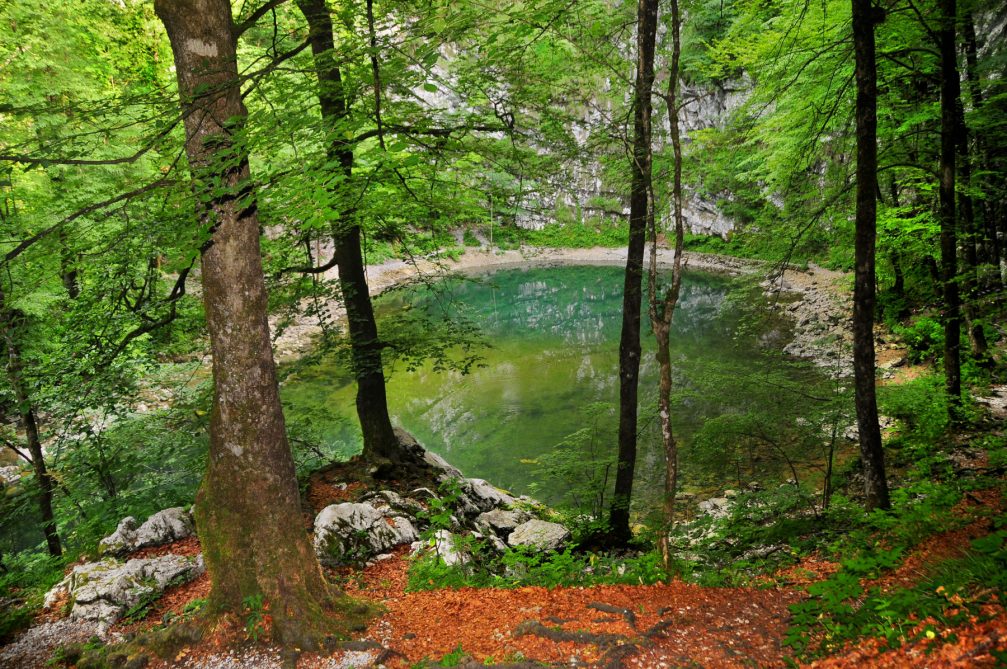
The lake has claimed the lives of several divers who tried to explore its source, which is more than 170 meters beneath the normally tranquil surface. (Image by Dunja Wedam)
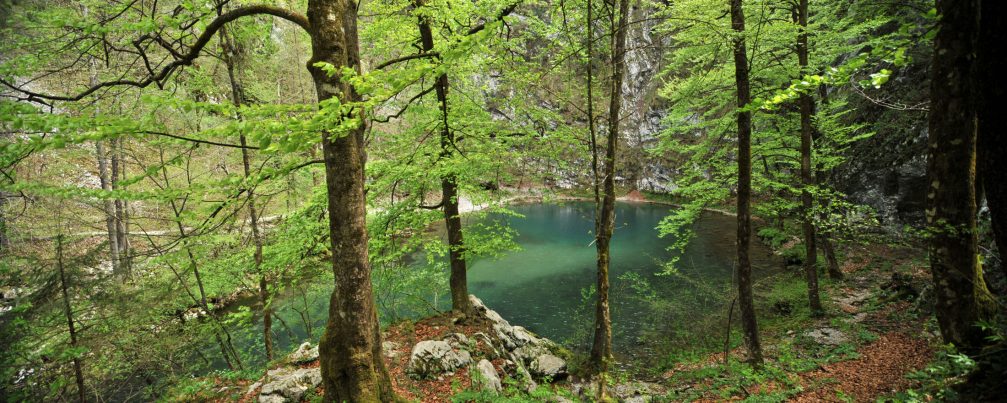
Spring and summer are probably the best time to visit the lake. (Image by Robert Zabukovec)

Panorama of the lake. (Image by Dunja Wedam)
Location of The Wild Lake on the map
Address: Gregorciceva ulica 22, 5280 Idrija, Slovenija
Latitude and Longitude Coordinates: 45.981678, 14.028413
GPS coordinates: 45° 58′ 54.0408” N 14° 1′ 42.2868” E
Traditional region: Littoral (Slovene: Primorska)
Statistical region: Gorizia
Municipality: Idrija
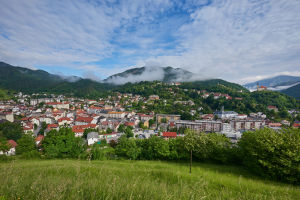 Idrija is a lovely small town with a population of just under 6,000 in western Slovenia that lies at the base of a valley, amid green hills and is crossed by the Idrijca river. It has a typical central-European architecture and you can see a strong influence of the Austro-Hungarian empire, especially in the town's main buildings. Today, Idrija is best known for three things: a mercury mine (the reason for Idrija's spot on UNESCO's World Heritage list), intricate locally made lace and zlikrofi (a traditional Slovenian dish from Idrija). |
| |
|---|
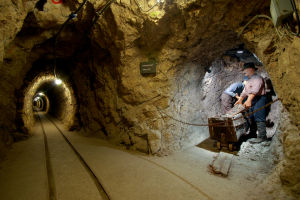 Overall Rating: The history of mining in Idrija dates back to 1490. Until the First World War Idrija's Mercury Mine was one of the best technically equipped mines in Europe. In 1986 the decision was made to close the mine. Today, visitors can tour a portion of the closed mine, called Anthony's Shaft, and learn about the difficult conditions endured by the mercury miners from the end of the 15th century till the end of the 20th century. |
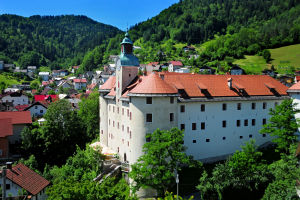 Overall Rating: The Gewerkenegg Castle stands atop a small hill on the western edge of the small mining town of Idrija in western Slovenia. It was built between 1522 and 1533 to serve as the administrative headquarters of Idrija's mercury mine. Today, the castle houses the award-winning Idrija Municipal Museum featuring the excellent collections which deal with mercury, lace and Idrija's history.. |
 Overall Rating: One of the most interesting examples of mining technology that still exists in Idrija is the Kamst, an impressive waterwheel made of wood in 1790 to pump the water out of flooded mineshafts below. With a diameter of 13,6 meters, it is the largest preserved wooden waterwheel in Europe. It operated uninterrupted for 158 years until 1948. It stands on its original location in a stone building on the western outskirts of town. |
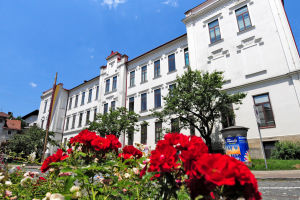 Overall Rating: The Idrija Lace School is a recognized and valued institution among professional circles in Europe. It offers quality education for students and adults in lace-making, maintains and develops this rich treasury of knowledge, and consequently enhances the quality of the lace produced in Idrija. In the school, there's a showroom where visitors can see the remarkable pieces made by students of the school. There's also a small shop with items for purchase. |
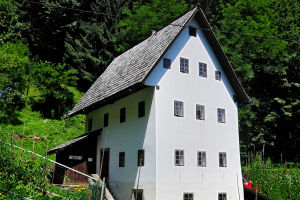 Overall Rating: The history of Idrija's days as a mining town is apparent in the numerous sights in the town and its surroundings. One such very interesting sight to visit, representing the former way of life of miners' families, is the 18th-century Miner's House, or Rudarska Hisa as it is called in Slovene. It stands in the Bazoviska street on a slope facing the town below, not far from Idrija's town centre. |
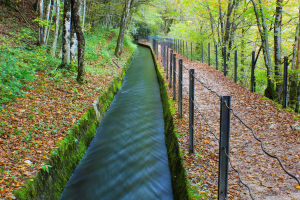 Overall Rating: The Rake water channel in Idrija was built at the end of the 16th century to support the mercury mine operations. Initially, the water channel was wooden, but in the second half of the 18th century it was enclosed with stone. Along the water channel, there's a two-and-a-half-kilometre-long nature learning path unveiling Idrija's treasures of geology, flora and cultural history.. |
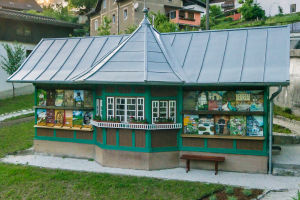 The Idrija Municipal Apiary stands behind the Church of the Holy Trinity, only a short walk from the center of Idrija. This highly crafted and extremely well executed and painted apiary is one of the most important structures of Slovene beekeeping. It was built in 1925 and completely renovated in 2013. |
| |
|---|
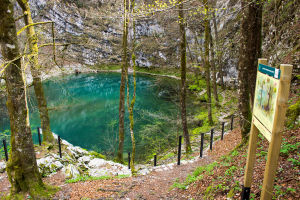 Overall Rating: Wild Lake or Divje Jezero as it is called in Slovene is a very unique and mysterious karstic lake located in Idrijski Log near the town of Idrija in western Slovenia. Since 1967, the lake has been protected as a natural monument of national significance of Slovenia. In 1972, the area of the lake was arranged into the first Slovenian outdoor museum in nature. In 1997 divers descended to 170 meters (558 feet), yet did not reach the bottom. |
| The accommodation options in Idrija can be divided into six main categories: hotels, guest houses, B&Bs, apartments, farm stays and hostels. |
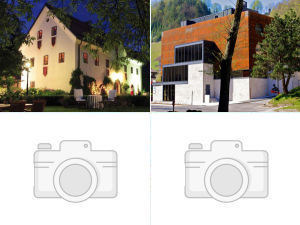 There are two hotels in the Idrija area. We have reviewed and rated them both, so, if you're planning to visit Idrija and would like to stay in a hotel, read on and find out which one best suits your needs. |
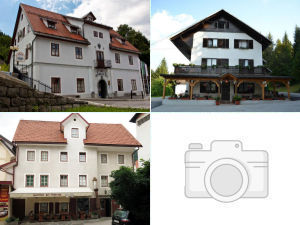 Guest houses are a very popular form of lodging in Slovenia and have been in use for many decades. We stayed at four different guesthouses in the Idrija area and would like to recommend two of them. |
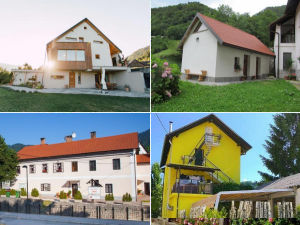 If you like complete privacy, comfort, want to be able to cook your favourite meals, or just look for a cheaper and better alternative to hotels, then Idrija apartments are meant for you. They usually have nice modern furniture and all the necessary equipment, including a well equipped kitchen and a modern bathroom. |
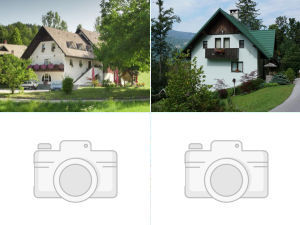 Bed and breakfasts are an inexpensive and relaxing alternative to a classic hotel for your stay, but currently we can recommend only one B&B in Idrija. |
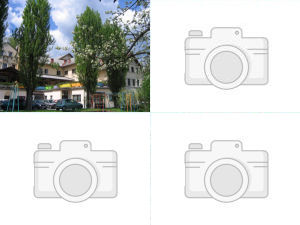 Idrija is a small town and only has one hostel. Find out if it suits your needs. |
 Farm stays are a great way of bringing your family together and experiencing another way of living. Find out which farm stay in the Idrija area we recommend! |


